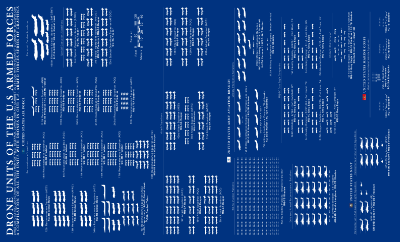HP will Announce ProLiant Hyperconverged This Month
Just in case you wondered why HP doesn’t have an hyperconverged system, here is what Meg Whitman said this quarter investors call: Looking forward, you can expect this momentum and investment in innovation to continue. Later this month, we will announce a new market-changing hyper-converged offering based on our industry-leading ProLiant virtualization server. Our new […]
The post HP will Announce ProLiant Hyperconverged This Month appeared first on EtherealMind.
A Deep Dive Into DNS Packet Sizes: Why Smaller Packet Sizes Keep The Internet Safe

Yesterday we wrote about the 400 gigabit per second attacks we see on our network.
One way that attackers DDoS websites is by repeatedly doing DNS lookups that have small queries, but large answers. The attackers spoof their IP address so that the DNS answers are sent to the server they are attacking, this is called a reflection attack.
Domains with DNSSEC, because of the size of some responses, are usually ripe for this type of abuse, and many DNS providers struggle to combat DNSSEC-based DDoS attacks. Just last month, Akamai published a report on attacks using DNS lookups against their DNSSEC-signed .gov domains to DDoS other domains. They say they have seen 400 of these attacks since November.
To prevent any domain on CloudFlare being abused for a DNS amplification attack in this way, we took precautions to make sure most DNS answers we send fit in a 512 byte UDP packet, even when the zone is signed with DNSSEC. To do this, we had to be creative in our DNSSEC implementation. We chose a rarely-used-for-DNSSEC signature algorithm and even deprecated a DNS record type along the way.
Elliptic Curves: Keeping It Tight
Dutch mathematician Arjen Lenstra famously talks Continue reading
Get Prepared for #SwarmWeek with New Video Series
Docker Swarm is native clustering for Docker. It turns a pool of Docker hosts into a single, virtual Docker host. We’re really excited about Swarm at Docker, because it lets you quickly and …
Read the full article at: blog.docker.com
Show 278: Your Data Center Is A Factory, Not A Museum
On today's Weekly Show, Greg and Ethan talk about some big ideas, including the notion that you should run your data center like a factory, not a museum; the rising influence of the Linux Foundation, and more.
The post Show 278: Your Data Center Is A Factory, Not A Museum appeared first on Packet Pushers.
Show 278: Your Data Center Is A Factory, Not A Museum
On today's Weekly Show, Greg and Ethan talk about some big ideas, including the notion that you should run your data center like a factory, not a museum; the rising influence of the Linux Foundation, and more.
The post Show 278: Your Data Center Is A Factory, Not A Museum appeared first on Packet Pushers.
Will Open Source Software Replace Existing OSS Systems?
 OSS leads to OSS, according to one China Mobile exec.
OSS leads to OSS, according to one China Mobile exec.
HPE Is Getting Hyperconverged
 It joins a crowded hyperconverged field.
It joins a crowded hyperconverged field.
PlexxiPulse—Case Study: Perseus
If you’ve been following us on the blog or social media, you know that we announced a partnership with Perseus last week to help expand their global reach into 29 sites across the globe. Perseus has built the world’s largest SDN-based on demand services network, allowing them to quickly offer new products and services while enabling new deployments at a rapid pace. They needed a vendor that could offer the agility and flexibility to deliver services very rapidly and cross the globe, controlling the speed of execution, delivery and operating expenses. Light Reading reporter Mitch Wagner explored the partnership in detail last week and our CEO Rich Napolitano penned a case study on the Plexxi blog as well. Both pieces illustrate how Plexxi is helping to build (and scale) next-generation networks of tomorrow.
Below please find a few of our top picks for our favorite news articles of the week. Enjoy!
InfoWorld: What hyperscale storage really means
By Rob Whiteley
Let’s be clear: Hyperscale isn’t about how large you are. Organizations don’t have to be huge to leverage hyperscale solutions. But that’s exactly what many IT infrastructure, operations, and devops pros think when they first learn about hyperscale. The Continue reading
Stuff The Internet Says On Scalability For March 4th, 2016
- 16 terabytes: new Samsung SSD; 1%: earned income from an on-demand platform; $35: PI 3 has 1.2GHz 64-bit quad-core ARM and WiFi; 1.5 million messages per second: Netflix cache replication;
- Quotable Quotes:
- @jzawodn: all right.. everything on one disk in one computer: 15TB SSD
- @jaykreps: The disadvantage is that the needs of most companies are really different from Google's. Depth vs breadth thing.
- Eliezer Sternberg: The brain tries to maximize the efficiency of our thinking by recognizing familiar patterns and anticipating them.
- david-given: I would love to have a modernised Ada. With case sensitivity. And garbage collection (a lot of the language semantics are obviously intended to be based around having a garbage collector.
- @tyler_treat: You're not even building microservices if you have things operating in lockstep and tightly coupled interactions and data models.
- cognitive electronic warfare: using artificial intelligence to learn in real-time what the adversaries’ radar is doing and then on-the-fly create a new jamming profile. That whole process of sensing, learning and adapting is Continue reading


